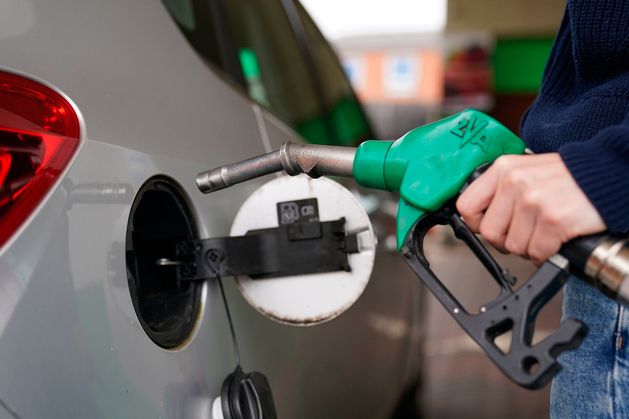Bussiness
Boost for drivers as petrol and diesel prices fall, while ESB announces cuts to EV charging costs

A drop in crude-oil prices and delays in delivering interest rate cuts in the US have contributed to lower demand for crude.
This has led to petrol prices falling 4c at the pumps this month to €1.79 a litre compared with the previous month.
Diesel prices are down 5c on the month to €1.71 a litre, according to AA Ireland’s monthly fuel price survey.
It comes as energy company ESB announced a planned price decrease across its public electric vehicle (EV) charging network from today.
This will see unit rates for high-power (200kW) chargers reduce by 13pc.
Drivers of petrol and diesel cars have seen pump prices fluctuate this year due to unplanned refinery outages in Europe and strikes on Russian refineries.
Tensions in the Middle East and attacks on oil container ships have also led to volatility in prices.
Crude-oil prices have fallen recently and are now hovering around $83 (€77) per barrel this month. Brent crude hit a low of $77.52 a barrel earlier this month, but it remains off its $90 peaks in mid-April.
Weaker demand in the US has resulted in high fuel stock levels amid increased production, and delays in interest rate cuts by US banks have also contributed to lower international fuel prices, AA Ireland said.
The AA’s head of marketing and PR Jennifer Kilduff called on the Government to postpone the planned hike in excise duty this summer, when it plans to restore the full rate of the duty on petrol and diesel.
The Government plans to fully restore the excise duty rates on August 1, with a final increase of 4c on petrol and 3c on diesel, before Vat.
There is also another carbon tax hike expected in October, which means drivers can expect prices at the pump to increase.
“The second reinstatement of excise duty is still set for August 1, along with another carbon tax increase in October,” Ms Kilduff said. “We hope the Government will reconsider this move, as it will directly impact motorists.”
Finance Minister Michael McGrath said last month that the final reversal of excise duty cuts on petrol and diesel will be “kept under review”.
The Government cut excise duties in March 2022 as prices reached €2.20 a litre.
Following several delays to plans to reverse excise duty cuts, it was decided that it would be reimplemented on a phased basis.
There were two increases in June and September last year and a third increase in April this year.
AA Ireland said electric-vehicle owners can expect to pay an average of €946 a year to cover the national average of 17,000km a year.
The AA figures were put together before ESB Ecars said it was cutting its prices for its public charging network for EVs.
Fast charger rates are coming down by 12pc and standard chargers reduce by 8pc.
This will mean the pay-as-you-go unit rate for a standard charger goes from €0.563 per kilowatt hour to €0.52.
Contactless payments will also be available on high-power chargers from the end of this week.
The existing once-off overstay fee of €8 has been replaced by an incremental fee in an attempt to encourage drivers to free up charge points for other drivers when they have finished charging, ESB Ecars said.
ESB’s most recent customer survey found that 76pc of respondents support the overstay fee.
The new overstay fee structure is 50c per minute and kicks in after 45 minutes on high-power fast chargers and after 10 hours on standard chargers.
ESB said it has installed 42 multi-vehicle, high-power charging hubs nationwide over the last two years and replaced over 300 chargers to increase the speed and capacity of the charging network.










